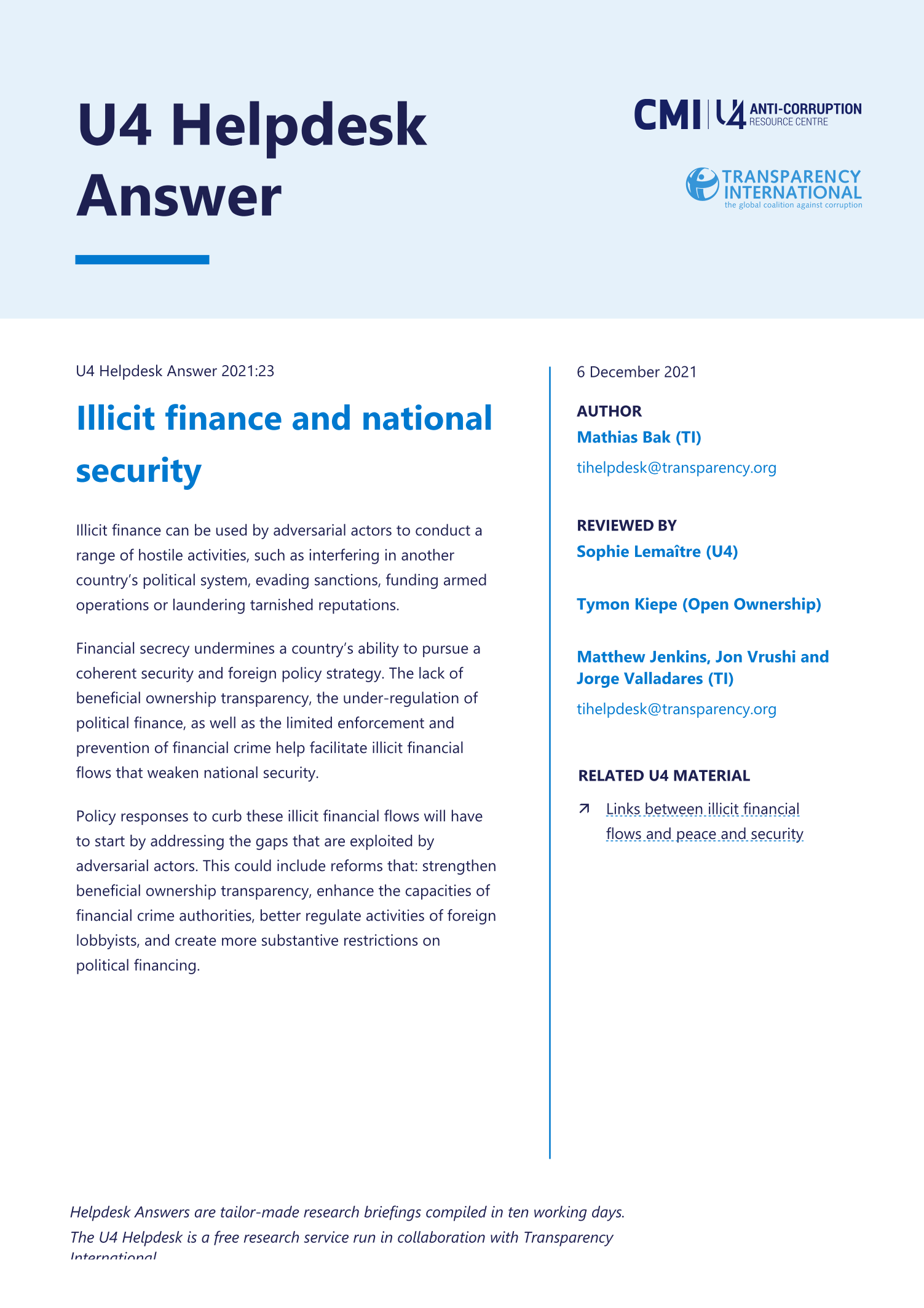Main points
- The use of illicit finance to conduct hostile activities can be thought of as a hybrid threat.
- Illicit finance is used as part of foreign influence operations, targeting both politicians and more grassroots-level actors.
- Adversarial actors can exploit vulnerabilities in poorly regulated financial systems to finance more openly hostile activities, such as the proliferation of weapons, violent extremism, armed operations and organised crime.
- Efforts to counter the use of illicit finance by hostile interests will have to begin at home.
- Potential policy responses include legislation that improves beneficial ownership transparency and the transparency of political financing.

